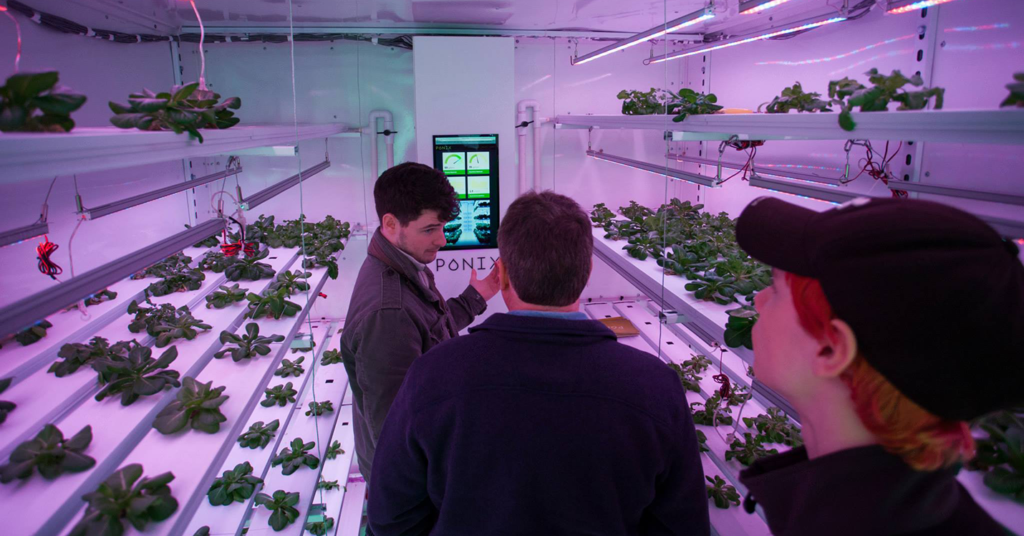
For over three decades, the New York Farm Show has been a gathering place for farmers across the United States. With more than 400 exhibitors showcasing the latest farm equipment, tractors, seeds, crop products, and other related goods, farmers attend the show to stay informed about the latest advancements in farming and to find ways to improve the success of their farms.
Exhibiting Innovation
In 2014, as farmers entered the exhibit hall, they were met with something innovative. Among the trailer tractors, harvesters, and other sizable agricultural equipment, stood a shipping container that had been repurposed and converted into an environmentally-friendly indoor farm. This shipping container housed Ponix’s cutting-edge farming solution, which included both hardware and software that could produce roughly 1,000 plants of produce every month, all while being fully automated.
Year Round Farming
Seeing snow on the ground and crops flourishing, the farmers’ curiosity was piqued, leading to numerous questions. How were the plants growing during the winter months? Learning about hydroponic farming, the farmers were thoroughly impressed with the concept of indoor crop cultivation, even during the coldest months of the year, without the need for sunlight or soil, and relying solely on water. This sparked their imagination, prompting them to consider converting their barns and utilizing underutilized spaces on their farms to establish units that would allow year-round production.
The Future of Agriculture
As farmers learned about hydroponic farming and the potential for year-round crop cultivation, they recognized the potential for this technology to provide solutions for the future of agriculture. Through hydroponic farming, farmers can reduce their dependence on weather patterns and other external factors that can affect crop production. Additionally, hydroponic farming can help conserve resources such as water and fertilizer, making it an attractive option for sustainable and efficient farming practices. This recognition has led to increased interest and investment in hydroponic farming as a means of addressing future food production challenges.
